Keiko Takahashi
Nacimiento : 1955-01-22, Shibecha, Hokkaidō, Japan
Historia
Keiko Takahashi (高橋惠子, born January 22, 1955 in Shibecha, Hokkaidō, Japan) is a Japanese actress. Prior to marrying director Banmei Takahashi in 1982, she went by her maiden name Keiko Sekine (関根恵子).
Description above from the Wikipedia article Keiko Takahashi, licensed under CC-BY-SA, full list of contributors on Wikipedia.

Shuji Tokita (Eiji Okuda) is a film director and a professor at a university. He goes through a difficult time trying to film his new movie. He believes his movies reflect his own personal expriences. A female high school student, Ritsuko (Yukino Murakami), appears in front of Shuji.

Ippei Akabane (Takaya Kamikawa) is an unpopular novelist. He barely makes ends meet writing serials novels under different pen names. Daigo Kurei (Shinji Takeda) is on death row. He killed four women twelve years ago. During his murdering spree, he sent pictures of his decapitated victims with flower decoration to the police. The murders and photos caused widespread panic in Japan. One day, Ippei is contacted by Daigo from prison. He asks Ippei if he wants to interview him and write his memoirs. Soon, more women are killed in the same grisly manner as the serial murders from twelve years ago. Now, Ippei becomes the prime suspect of the police and Ippei must quickly find the real murderer. Based on the novel "The Serialist" by David Gordon (published by Simon & Schuster; Original edition on March 9, 2010).
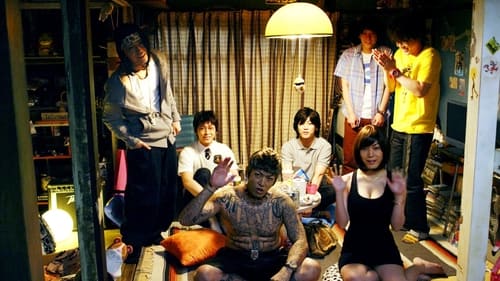
Hitoshi Nagano, who works at an electronics store, picks up a cellphone left behind by a customer and goes about a scam. He calls the person's mother and pretends to be her son. He then gets the mother to transfer money to his bank account. Soon, Hitoshi gets a lot more than he bargained for.
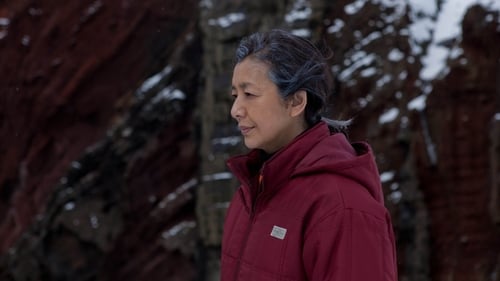
Chiyo Morita
A woman run a store in a tiny seaside hamlet near the cliffs where people come to commit suicide.

Shizuko Tôyama
A film about an orphan kid in Japan in 1943

Ai's mother
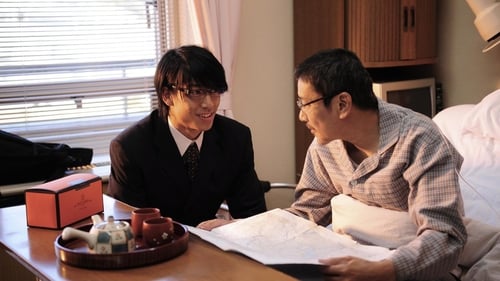
Izumi Kita
Shiro's struggle with his father's cancer and impending death leads to a realization that he must communicate his love and admiration for him before it's too late. A series of flashbacks reveals their relationship over time, and the trouble Shiro faced connecting to his strict father who was also his teacher and soccer coach. With a consuming secret of his own, Shiro, now in his late twenties and about to get engaged, must eventually learn how to share the pain of it with his loved ones.
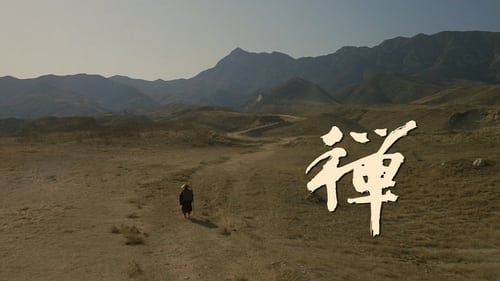
La historia, ambientada en el período Kamakura, trata sobre un monje budista, que cumpliendo los últimos deseos de su madre, dedica su vida a la meditación, divulgándola entre los japoneses.
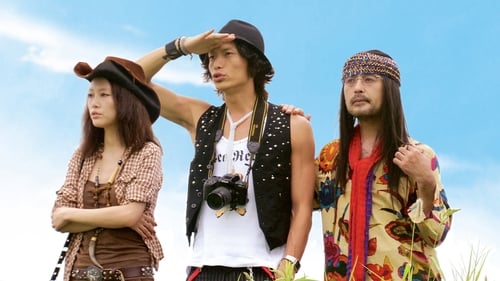
A freelance writer is given a bizarre assignment by the sexy editor of "Black Book Monthly": find a bug with the power to bring humans back from the dead, in order to report on the afterlife. With his trusty companion Endo in tow, he sets off on a quest for the elusive insect and along the way meets the mysterious Sayoko, a former dominatrix and habitual wrist-cutter who delights in rubbing wasabi into her wounds.

"Tokyo Rhapsody" consists of 11 short films all centered around the music genre known as "Kayokyoku". Kayokyoku is a catch-all term to describe the music that defined two generations of post-war Japan. Although the term survives, it has a strong connotation with a simpler, pre-"Economic Bubble" era when Japanese people shared a common identity in the reconstruction of their nation.

Shige Sano
Set in the traditional city of Kyoto, Japan, this deeply poetic TV movie revolves around Chieko who becomes bewildered and troubled as she discovers the true facets of her past. With the harmony and time-honored customs of a Japanese backdrop, the story becomes poignant as Chieko’s longing and confusion develops.
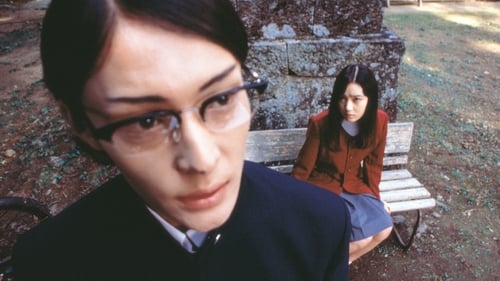
Yukie Saito
En Kurozu-Chou, un pequeño pueblo de Japón, Kirie se encuentra con el padre de su novio que graba en silencio un caracol. La obsesión del hombre con las espirales se vuelve cada vez más extraña, terminando en su suicidio en una lavadora que convierte su cuerpo en una espiral. Pronto otros habitantes se vuelven poseídos con diferentes formas de espirales.

Kuramori Ritsuko

Directed by Banmei Takahashi of "New Love in Tokyo." A drama centered around identity, with a half Korean/Japanese man and a hermaphroditic woman.

Asian Blue focuses on Koreans brought to Japan to work in forced-labor brigades during World War II

A man fed up with city life moves to a village in the mountains

Ai is a call girl. If her work involves a great deal of risk, she feels free and like fun situations that may seem dangerous ... Ai likes to play. she met many customers, sometimes violent, sometimes very sweet , but often crazy... Among these clients, Mr.Mamiya, a strange and captivating artist who gradually will initiate her into SM pleasures. Despite everything, her attraction to him is growing and one day she told him " I love you ", Next day Ai receives a letter of invitation sent by Mamiya.

Mother of a healthy child
An old man falls into a coma and dreams about his childhood during WWII.
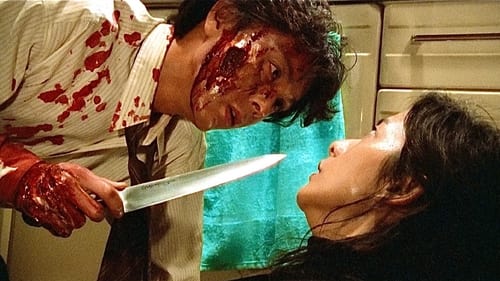
A housewife, Yasuko lives in an urban high-rise apartment with her husband Satoru and her son Takuto. Annoyed by spam calls and door-to-door salesmen, Yasuko slams the door on a salesman’s finger when he tries to squeeze a flyer through chained door. He leaves but the next day, her nightmare starts.

Comedy film.

お民
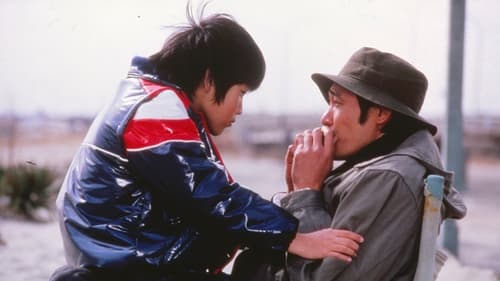
Etsuko Tajima
A drama depicting the conflict between a man that ran to an old lover suffering from advanced leukemia, his wife and child that were left behind, and the friendship that develops between his wife and his former lover.

First production by Directors' Company. A man stripped bare of all modern values lives in a pure form, like a beast, feeding and satiating his every primal desire whenever they may arise. He takes on a mate, a woman intrigued by his personage or lack thereof, and they live in his den in central Tokyo. As time goes on, we see how this animal clashes with modern man, and the consequences of their coexistance.
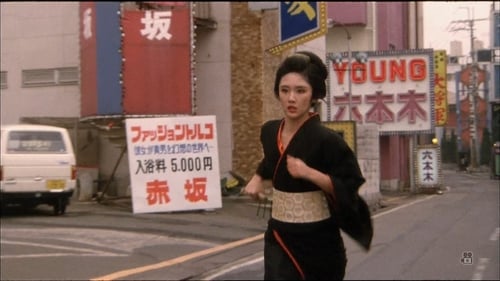
Oichino Kata
A woman works as a prostitute and attendant to make a living at a bathhouse. She is athletic and is an avid runner. She has met and adopted a white dog and the two have become inseparable. It is the biggest tragedy and calamity when the dog is found dead, killed, murdered. The woman swears to find justice by finding the murderer and making things right.

Miyo Arai
Story of three people, a barber, a Christian and a graduate of the Tokyo Military Academy during the 2nd World War.

Michiyo
An ardent culture-vulture youth, previously charged for the murder of a woman when he was young, plans to hold hostage a local bank.

Yuko Kano
Yuko is in love with an old poet who happens to be also a married man. She waits patiently for him and only him, yet she is constantly being lust by others.

Iwa
A former retainer to a noble family kills his wife's father when he tries to expose his past crimes. When he begins an affair with the daughter of another clan's retainer, her father tries to poison him but the substance instead claims an innocent victim...
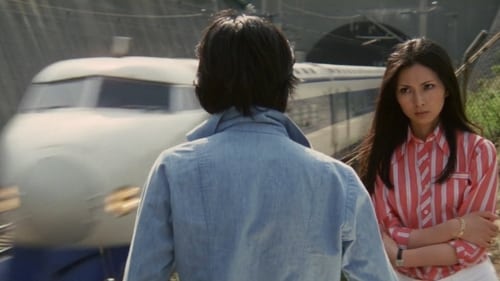
Tomoko
Akiyama is an intern, disgusted with the noise pollution caused by the bullet trains and the heart attacks that noise has been causing in older hospital patients, plots to disrupt and, in ten days, destroy a unit of the operation. He warns the Japan National Railway, that, if nothing is done to reduce the noise, he will derail a bullet train. Takigawa is the police detective sent to stop him.

Mainly the story of Shinsuke and his stepmother, ranging from Shinsuke's infanthood to his mid-teens. Coal workers and the mines dominate nearly every aspect of the life of the characters. Shinsuke's father dies while bravely using dynamite to rescue a group of trapped Korean miners. Several older men attempt to help he and his mother cope, including a kind Korean and a Harley-riding yakuza.

Based on a blockbuster song by Kaguyahime, a folk group. Makoto, a college student who belongs to a puppet theatre club, meets Michiko, who works at a printing factory, and they come to learn the bitterness and sadness of love. The two live humbly by the River Kanda, but are viewed coldly by people around them.

Though a farmer and his fellow villagers in this Japanese film resist the effort to turn the unspoiled region in which they live into a land development, they are ultimately unsuccessful.

A 16-year-old girl works in a factory to pay her late father’s debt. When she makes up her mind to become a hostess, a boy approaches her with kind and gentle manners...(Also occasionally known in English as “Play”)

Kyoko Tamura

Setsuko
Yumi Ishikawa (Mari Atsumi) is nineteen and a popular geisha. Orphaned when a child, Yumi she was raised by Shizuko, the madame of a geisha house. Yumi is impulsive, out-going. And although she cannot claim to be good at Japanese dancing or playing musical instruments so necessary to a geisha, she is a whizz at go-go and will dance the hula at parties. But before becoming a full-fledged geisha, Yumi must go through the ceremony of the "mizuage", when a budding geisha surrenders her virginity to an experienced man who makes her a woman. Takida, a rich money-lender, is chosen for Yumi's mizuage but she offers herself first to Keiichi (Ryo Tamura), who she really loves although she knows that his world and hers are too far apart for a successful marriage.

Reiko Mayuzumi
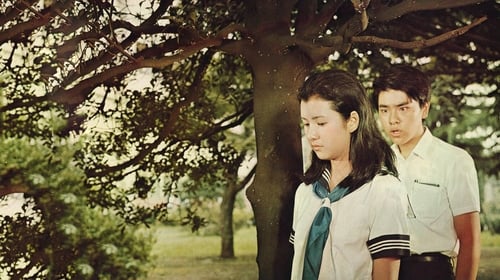
Yoshiko Kitahara

Art Direction
This is the only surviving “Mito Komon Manyu-ki” film. This release also known as "Adrift Tour Memoir" or literally "Mito Komon's Pleasure Trip" is an 80-minute compilation of the first (東海道の巻 or "Tokaido no maki") and second (日本晴れの巻 or "Japan's Fine Weather Reel") parts (147 minutes), which were re-edited and screened at a time when presentable films were dried up immediately after the defeat of the war.

















